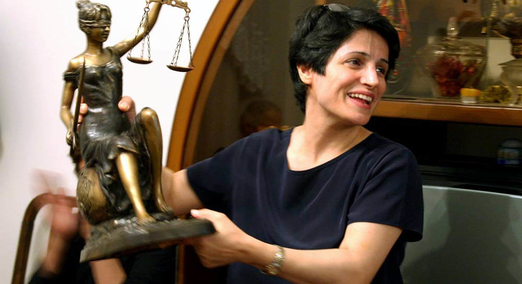Amnesty International is calling for the immediate and unconditional release of all the prisoners of conscience it is campaigning for worldwide, who are now at heightened risk due to the COVID-19 pandemic.
“As this devastating virus sweeps across the globe, prisons are at risk of becoming dangerous hotspots for COVID-19. It is more important than ever that states take urgent measures to protect all those who are behind bars, including by releasing all individuals who are held simply for peacefully exercising their rights,” said Sauro Scarpelli, Deputy Campaigns Director at Amnesty International.
“Prisoners of conscience have not committed a crime, and yet they continue to be arbitrarily detained in conditions that are now becoming increasingly perilous. The overcrowding and lack of sanitation in many prisons around the world make it impossible for detainees to take preventive steps against the disease, such as physical distancing and regular hand washing. Their unjustified detention is putting them at heightened risk.”
Amnesty International is actively campaigning for the release of some 150 individuals it has designated prisoners of conscience – individuals who are detained in various parts of the world solely for peacefully exercising their human rights. While Amnesty is working on 150 cases, there are likely thousands more.
The emblematic cases Amnesty is campaigning for include Rubén González, a Venezuelan trade unionist who was arbitrarily arrested on 29 November 2018 after peacefully protesting and advocating for labour rights for workers at a state-owned mining company. He was accused of attacking a military officer and sentenced to five years and nine months.
Rubén was tried, convicted and sentenced by a military court, denying his right to a fair trial. There was no reliable evidence against him and his detention and trial were clearly politically motivated. He is already in poor health suffering from renal failure and hypertension, which puts him at higher risk of COVID-19.
Iranian human rights lawyer Nasrin Sotoudeh is also a prisoner of conscience. Arrested on 13 June 2018, she was sentenced to 38 years and six months in prison and 148 lashes after two grossly unfair trials. The charges against her relate to her opposition to forced veiling laws, including “inciting corruption and prostitution” and “openly committing a sinful act…by appearing in public without a hijab”; as well as her activism against the death penalty.
Some of the legitimate activities that the authorities cited as “evidence” against her include: removing her headscarf during prison visits; giving media interviews about the violent arrest and detention of women protesting forced hijab; and belonging to human rights groups such the Campaign for Step by Step Abolition of the Death Penalty.
Emir-Usein Kuku is a Crimean Tatar who investigated and denounced human rights violations, including enforced disappearances, taking place under the Russian Federation’s ongoing occupation of Ukraine’s Crimean Peninsula.
He has been in prison, separated from his wife and children, since February 2016. On 12 November, a Russian military court found him and his five co-defendants (Muslim Aliev, Vadim Siruk, Enver Bekirov, Arsen Dzhepparov and Refat Alimov) guilty on trumped-up terror-related charges. After a protracted and unfair trial, they have been given prison sentences of between seven and 19 years. Amnesty International considers all six to be prisoners of conscience.
“The unjustified detention of anyone in the midst of a global pandemic is cruel and gravely irresponsible,” said Sauro Scarpelli. “Human rights for all must be put at the core of the COVID-19 response and remain at the centre of our efforts to build a just and tolerant future, where all individuals can freely and peacefully express their opinions in the post COVID-19 world.”
Background
Amnesty International is campaigning on behalf of around 150 prisoners of conscience. The exact number varies from time to time due to release, death or the fact that some individual cases are representative of a larger group of people – as in the case of Emir-Usein Kuku above.
In addition to freeing prisoners of conscience, Amnesty International is calling on governments to take steps to curb the spread of the pandemic, including by decongesting prisons. The authorities should also review cases of people in pre-trial detention as well as children, and consider the early, temporary or conditional release of people at particular risk, such as older people and those with underlying medical conditions.
The organization is also urging governments to provide a standard of healthcare for people that remain in prison that meets each person’s individual needs, similar to what is available in the community, and that ensures the maximum possible protection against the spread of COVID-19. For more information see https://www.amnesty.org/en/get-involved/covid-19/
Since it was founded in 1961, Amnesty International has campaigned for thousands of prisoners of conscience – people who have been arbitrarily detained because of their conscientiously held beliefs or because of their identity.
****************************************
For more information or to arrange an interview please contact:
Lucy Scholey, Media Officer, Amnesty International Canada, lscholey@amnesty.ca





















